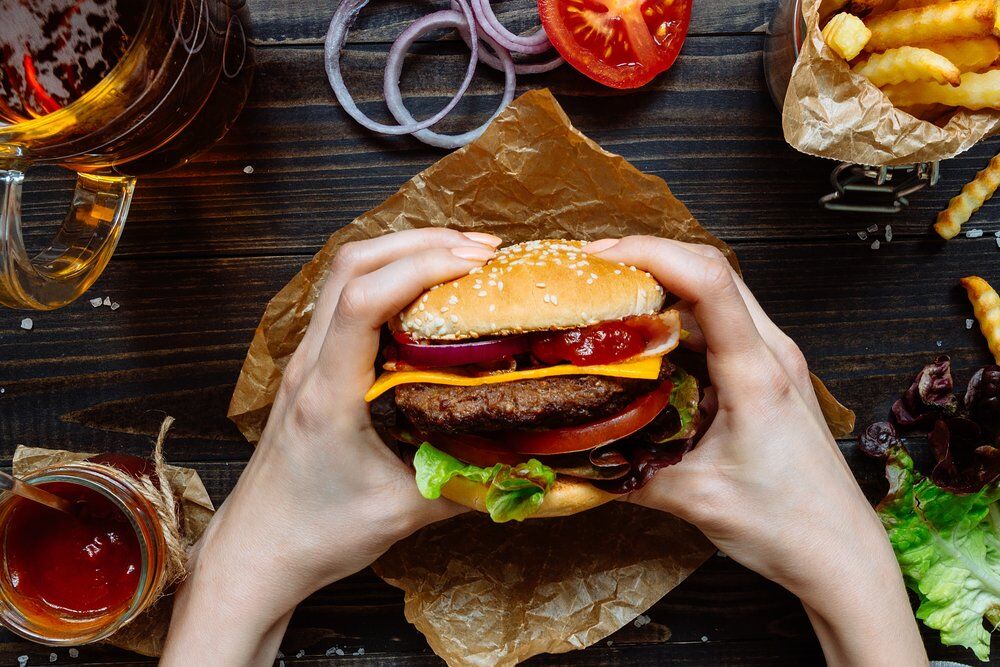
Eat Fat, Lose Fat
PT, BSc Sport & Exercise Science graduate, and dedicated fitness blogger Ste Watson explains how & why a high-fat diet, can result in a leaner, more sculpted self in a short amount of time.
At first glance of the articles title and the practice of eating fat in a bid to burn fat may seem slightly counterintuitive. However, think again and adjust your dieting strategy accordingly.
My best physical condition is always a result of going into a state of ketosis: a metabolic shift where the body becomes incredibly efficient at burning fat, both in rest and training. The only way to get into this state is by chomping down fatty and protein-rich foods whilst limiting carb intake to almost 0, or as close as possible. A typical day in the life of this diet looked something like this:
Meal 1 – Black coffee with TPW coconut oil (teaspoon); 6 whole eggs with spinach
Meal 2 – Post-training – Low-carb TPW Whey Protein with water and double cream; handful of almonds
Meal 3 – 3 Chicken thighs, broccoli with virgin olive oil
Meal 4 – Tuna salad: Tuna, spinach, avocado, almonds with virgin olive oil
Meal 5 – Full fat cottage cheese with asparagus
From personal experience, the results from a nutrition plan such as this combined with a smart training regime are nothing short of phenomenal for physical conditioning, reducing body fat incredibly low, very quick.
But How?
The success of a diet such as ketosis is both down to the effects of boosted fat intake coinciding with the fact carbs have been dropped to almost nothing. My macros typically look something like Fat (50%), Protein (45%) and Carbs (<5%) based on calorie intake, when following a dieting regime with fat loss intentions. Carbohydrates raise the blood sugar levels (glucose) within the body. In order to disperse this glucose into the cells where it’s used as energy, the pancreas secretes a hormone called insulin, which acts as the key to unlocking the cell and letting glucose enter. This is then either stored in the muscle as glycogen or deposited as fat if there’s no additional demand for glycogen stores. Further to this, whilst the body is in storage mode it is unable to give rise to glucogen: the hormone responsible for converting fat into energy. From this you can see the benefits that come with dropping carbs whilst cutting; we’re simply looking to keep insulin at base level, prevent going into storage mode and let glucagon get to work. You may be asking yourself ‘where will the energy come from to function?!’ – enter fats. Although recent conventional wisdom would have us believe we derive our energy solely from carbohydrates and fats are the devil to be rid of at all cost, this simply isn’t the case. The body is more than capable of producing sufficient energy from fat intake by converting the abundance of fatty acids into ketone bodies, an energy unit for cellular activity.
The Conclusion
If you’re ready to get serious with your weight loss or conditioning goals then look no further, however if you don’t think you can commit, don’t start. This isn’t the kind of diet you can dip in and out of and you will be rewarded with the same level of dedication you give. The results happen relatively fast so this will provide the motivation to sustain the diet, along with the fact that hunger is massively suppressed during this time. I strongly recommend giving this a shot!
Article by Ste Watson
(BSc Sport & Exercise Science, personal trainer and fitness blogger)
http://www.stewatsonfitness.co.uk/




No Comments yet!